Ways to determine an infants caloric needs

Learn how to determine your baby’s caloric needs, including the calories in breast milk and formula, to ensure your infant gets the right nutrition for healthy growth.
Breast milk is the most ideal food for babies in the early stages of life to help babies develop comprehensively. Accordingly, the mother's nutrition is a key factor determining the quality of milk sources. Therefore, to ensure the health of both mothers and babies, mothers do not forget to add vitamins for mothers after giving birth that aFamilyToday Health introduces in the article below.
In fact, the female body often suffers from a deficiency of necessary nutrients . On the other hand, the daily diet as well as the usual types of milk on the market can not meet the nutritional needs of mothers in the most complete way.
So the supplement of multivitamins is extremely important to help you quickly recover, ensure enough nutrients to feed your baby and avoid body breakdown. Please read through the following article of aFamilyToday Health to know exactly what multivitamins for postpartum women!

As mentioned, babies who are breastfed for at least the first 6 months of life will develop both mentally and physically. In fact, this is only true when the quality of breast milk is guaranteed.
Accordingly, in many cases, breast milk may be deficient in some essential vitamins and minerals such as B vitamins, vitamin D ... These nutrients play an important role in strengthening the immune system, helping to prevent some problems. Potential health problems can occur in both mother, and baby.
If nutritional needs are not met through diet, postpartum mothers should consider taking a multivitamin.
Before discussing the role of multivitamins for postpartum women, you need to make sure you consult your doctor. This will help you know what nutrients are needed, how much to add to choose the right product, to avoid wastage.
Below are some of the most common postpartum maternal vitamins, benefits and recommended foods:
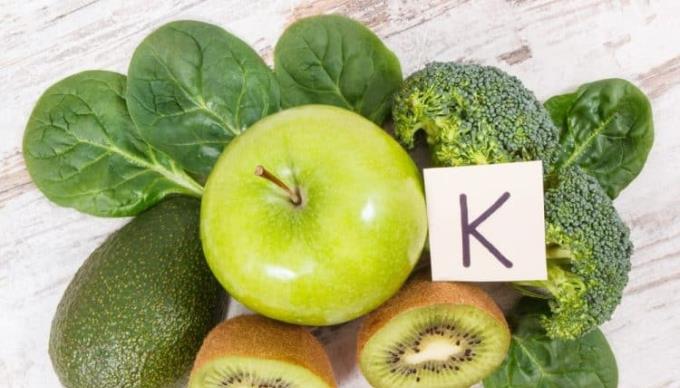
The "K" in the name is derived from the first letter of the word "Koagulationsvitamin" which literally translates to coagulation, which was the vitamin's first function when it was first discovered.
Today, vitamin K is better known for its role in the production of red blood cells, improving bone density and activating clotting factors in the body. Many people even compare that if you only lack vitamin K a day, a tiny cut can put you in a critical condition.
In addition to the above benefits, vitamin K also helps maintain brain function, prevent cardiovascular disease and increase insulin sensitivity.
To supplement this vitamin, in addition to functional foods, mothers can look for vegetables such as broccoli, cabbage, lettuce, spinach ...
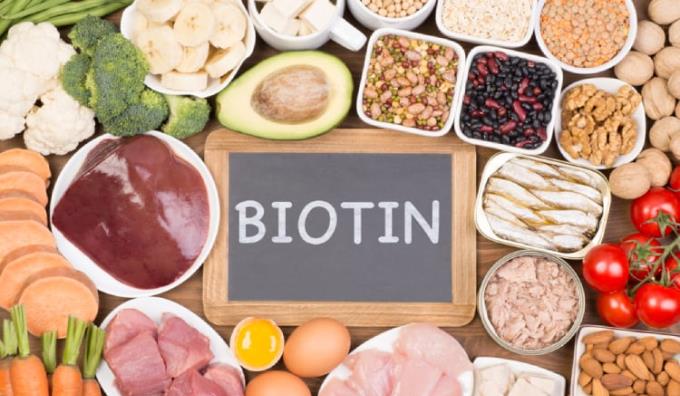
Biotin is also known as vitamin B7 or vitamin H, one of the vitamins indispensable for women after giving birth.
Surely many mothers are not familiar with milk loss after giving birth . The most common cause of this problem is hormonal changes in the body. If the hair loss is severe and persistent, consider taking biotin supplements.
Because, this is an essential ingredient that brings vitality to the skin and hair. Moreover, this nutrient also supports to increase metabolism , control weight and promote the formation of other essential elements in the body.
Vitamin H is found in foods such as egg yolks, fish, milk, oats, soybeans and some nuts ...
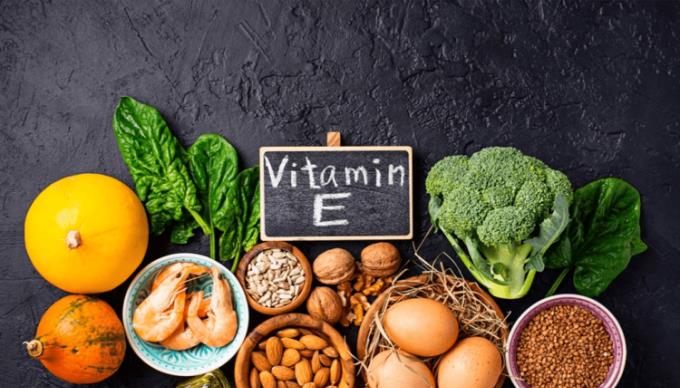
Vitamin E is not only considered as a "miracle" to help postpartum women regain their idyllic beauty but also bring many great health values.
Accordingly, this nutrient brings out the effect of dispelling stress, fatigue, enhancing resistance , especially reducing excess fat accumulation and regulating red blood cell production for the body.
Despite these many benefits, if not used carefully, vitamin E can cause damage to the body. If you take synthetic vitamin E, you must pay more attention to the dosage you need to supplement.
In addition, you should also have a balanced dosage when combined with foods rich in vitamin E such as grains, soybeans, barley, eggs, dark green leafy vegetables ... If in doubt, Do not hesitate to consult your doctor!

Perhaps somewhere you have heard or read the news that vitamin D can be made by the body. This is completely correct, but most postpartum women are deficient in this nutrient, so there is little or no vitamin D in breast milk to pass on to their babies.
This is extremely unfavorable, because vitamin D, especially vitamin D3, plays a particularly important role in your baby's development . Without vitamin D3, the child is at risk of rickets, and the cartilage is not fully calcified, making the bones deform, affecting the baby's gait and height ...
With mothers, if the body does not have enough vitamin D after giving birth, you will have to face a series of problems such as osteoporosis, joint pain, shoulder aches and nape, sweating ...
In addition to taking supplements according to the doctor's instructions, use foods rich in vitamin D such as milk, eggs, meat, fish, legumes ... You can get more "solar vitamins" by Set aside 10–15 minutes each day to sunbathe early in the morning.
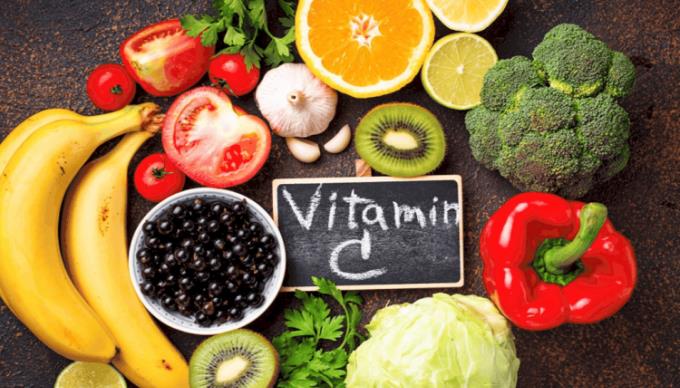
After giving birth, many mothers fall into a state of physical weakness due to excessive abstinence or pressure in family affairs and child care. Therefore, in addition to a reasonable diet, you need to add additional maternal vitamins to regain balance, especially vitamin C.
This nutrient helps to improve the mother's already fragile immune system. In addition, vitamin C has the ability to promote mechanisms of cell damage repair, wound healing.
The reason for this problem, experts said that vitamin C stimulates white blood cells to work harder. Accordingly, this immune cell plays the role of "wiping out" all harmful agents from the external environment entering the body. At the same time, it is also involved in the formation of collagen and some components that create connective tissue in many different organs.
Another important benefit that is little known is that vitamin C enhances iron absorption, prevents anemia. Most of us know this nutrient is abundant in fruits such as: oranges, tangerines, cherry, guava ... In addition, some vegetables such as greens, celery, marjoram, cauliflower ... also contain a Small amounts of vitamin C.

Most mothers often focus on vitamin B9 supplementation during pregnancy with little regard to these nutritional supplements during breastfeeding. Although folic acid is also present in familiar foods such as rice, milk, wheat, green leafy vegetables, the content is not high, making it difficult to meet the body's needs.
Accordingly, folic acid plays an important role in brain development, as well as participating in many nerve functions in infants. The absence of vitamin B9 in breast milk slows down the process of DNA synthesis and cell division, resulting in less development of the baby.

The maternal vitamin supplement after giving birth is indispensable with B vitamins, especially vitamin B6. Although only a small amount is needed, this nutrient is very important to the body.
Sufficient sleep is an essential condition for the growth of babies and for repairing and repairing cells in the mother. Interestingly, vitamin B6 helps regulate the sleep cycle by optimizing the process of melatonin hormone formation . Not stopping there, pyridoxine is also essential for nerve development, while promoting the brain to work more efficiently.
In essence, this vitamin is found in most poultry, cereals, oatmeal, bananas ... so B6 deficiency is quite rare. However, if the mother suffers from congenital disorders of absorption and metabolism, there is still a risk of this condition.
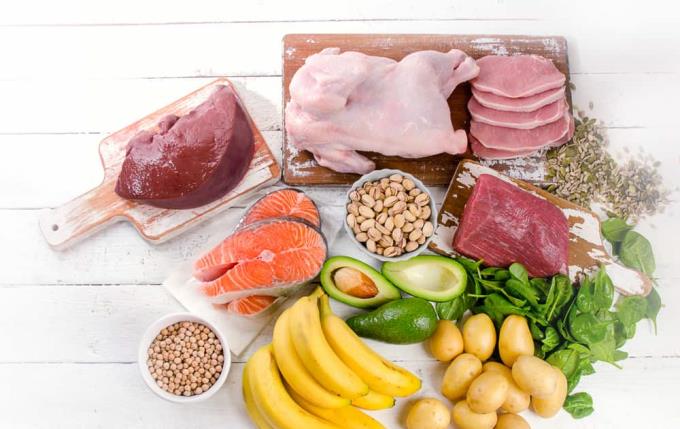
Among the multivitamins for postpartum mothers, pantothenic acid is rarely mentioned. However, the health values that this vitamin brings are also very interesting.
Most mothers elected after cesarean section are usually prescribed vitamin B5 supplements by their doctors. This is because it not only promotes wound healing, but also contributes to increased hemoglobin levels, thereby reducing the risk of iron deficiency anemia .
This is also one of the nutrients needed for the formation of fats, proteins, carbohydrates ... It can be said that any ingredient that helps maintain a healthy body is indispensable for this vitamin.

In the case of any disease related to infection or inflammation, then vitamin B3 is the best supplement for you.
The presence of niacin helps to lower cholesterol, aids in blood circulation and improves memory . This is a vitamin that is not stored by the body and is rarely formed by metabolism. Therefore, you need to supplement through foods such as milk, eggs, chicken and nuts.

Cobalamin or vitamin B12 has a great influence on the synthesis of DNA and the duplication and production of cells in the body. Therefore, this postnatal maternal multivitamin supplement is essential to ensure the healthy development of the newborn.
In addition, vitamin B12 also participates in the structure of nerves, thereby helping to transport good nerve signals, enhancing cognitive abilities and intelligence for children.
You can find a lot of cobalamin in foods such as animal meat, salmon, cheese ... If you supplement this vitamin by mouth, you should pay attention to avoid high doses, prolonged can lead to many effects. Unwanted use for the body, such as: digestive disorders , increased risk of prostate cancer , blood vessel obstruction due to clot formation, headache, rash ...
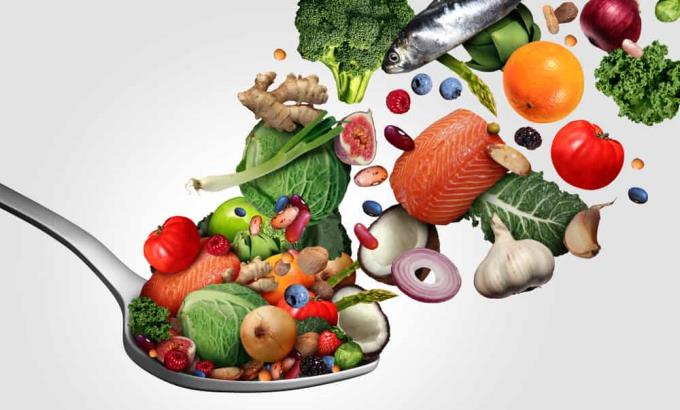
Often doctors tend to recommend this vitamin supplement for pregnant women after giving birth if symptoms of anemia are noticed. Because, riboflavin is an agent that plays a role in the storage and use of iron in the body. This is very important in the prevention of iron deficiency anemia.
Like pantothenic acid, vitamin B2 is present in most living cells and most in everyday foods such as grains, green vegetables, legumes, meat, eggs, milk ... You are very easy to recognize. This lack of nutrients through a number of systemic manifestations such as fatigue, reduced ability to work, bloating , long-healing wounds ...

In addition to anxiety, prolonged insomnia, one of the causes leading to hair loss and frizz is vitamin A deficiency. This is the "obsession" of many mothers to breastfeed, especially in The first 6 weeks since labor.
To improve this problem, while enhancing eyesight, it is advised that mothers should take vitamin A supplements or strengthen these nutrient-rich food groups such as beef, spinach, carrots, oranges ...
The above are suggestions about vitamins for mothers after giving birth to pay attention to supplement if you want to improve the quality of breast milk. If you have any doubts, please contact your doctor to get the answer!
Learn how to determine your baby’s caloric needs, including the calories in breast milk and formula, to ensure your infant gets the right nutrition for healthy growth.
Discover the top 5 smartest dog breeds in the world, including Border Collie, Poodle, German Shepherd, Golden Retriever, and Doberman Pinscher. Learn about their unique traits and why they are considered the most intelligent dogs.
Discover 7 nutritious and delicious ways to cook egg porridge for babies, including recipes with cheese, pumpkin, tomato, and more. Learn how to prepare baby-friendly egg porridge with our expert tips.
After a series of medical measures they obtained a complete human vascular system profile.
Watermelon is one of the fruits that many people love, not only cheap but also delicious, nutritious and refreshing in the summer. To get delicious watermelon pieces, show off your housewives, your artistic talents to cut beautiful pieces of watermelon.
aFamilyToday Health - The digestive system and body in each baby is different. Parents need to recognize notes to deal with when babies have a food allergy!
Babies need many factors for perfect development. aFamilyToday Health shares with parents things to keep in mind when babies are 8 weeks old so that parents can take care of their babies the best!
Babies need many factors for perfect development. aFamilyToday Health shares with parents things to keep in mind when babies are 18 weeks so that parents can take care of their babies the best!
Babies need many factors for perfect development. aFamilyToday Health shares with parents things to keep in mind when babies are 28 weeks old so that parents can take care of their babies the best!
Babies need many factors for perfect development. aFamilyToday Health shares with parents things to keep in mind when babies are 32 weeks old so that parents can take care of their babies the best!








